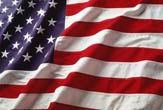America's Superpower Status Threatened by Financial Crisis

Get the world’s most fascinating discoveries delivered straight to your inbox.
You are now subscribed
Your newsletter sign-up was successful
Want to add more newsletters?

Delivered Daily
Daily Newsletter
Sign up for the latest discoveries, groundbreaking research and fascinating breakthroughs that impact you and the wider world direct to your inbox.

Once a week
Life's Little Mysteries
Feed your curiosity with an exclusive mystery every week, solved with science and delivered direct to your inbox before it's seen anywhere else.

Once a week
How It Works
Sign up to our free science & technology newsletter for your weekly fix of fascinating articles, quick quizzes, amazing images, and more

Delivered daily
Space.com Newsletter
Breaking space news, the latest updates on rocket launches, skywatching events and more!

Once a month
Watch This Space
Sign up to our monthly entertainment newsletter to keep up with all our coverage of the latest sci-fi and space movies, tv shows, games and books.

Once a week
Night Sky This Week
Discover this week's must-see night sky events, moon phases, and stunning astrophotos. Sign up for our skywatching newsletter and explore the universe with us!
Join the club
Get full access to premium articles, exclusive features and a growing list of member rewards.
A dismal economy coupled with mounting federal debt and expected cuts to science and technology spending threaten to unseat the United States as the reigning superpower of the world.
Many people around the globe already thought the mantle had been passed, perhaps to China, though that possibility is hotly debated.
Now signs of changing times are more stark, with world leaders frustrated and even angry over a global financial crisis many see as caused by American policy mistakes. Meanwhile the monetary meltdown is likely to force cuts in public and private science and technology investment — a cornerstone of the American economic engine that has historically driven the nation's preeminence.
While opinions on the ultimate outcome run the full spectrum of possibilities, many see a new world order, of some sort, in the making.
"The general perception of the United States as the key base of the world economy is shaken badly right now," said Alan Porter, emeritus professor of the School of Public Policy at the Georgia Tech. "That will spiral into foreigners being less inclined to put their money into our government and companies. And that will lead to less investment and production."
Porter and others also don't see how military spending can continue at such a high level.
"Military might depends upon economic wherewithal," Porter told LiveScience. "We are so stretched now, that this is certainly slipping."
Get the world’s most fascinating discoveries delivered straight to your inbox.
Yale University sociologist Immanuel Wallerstein has been predicting the end of America's global dominance since the 1980s. This week he told the Christian Science Monitor that fallout from the Iraq war and the mounting U.S. debt had accelerated the country's decline, and the current global crisis is just a culmination of these events.
Superpower ingredients
America's superpower status depends on many factors. It was achieved through dominance in military, economic, political, intellectual, technological and cultural realms. Some experts have been saying in recent years that power could shift to those nations with huge emerging economies.
In a survey released in June, the Pew Research Center reported that citizens in many countries think the shift has already occurred:
"Most of those surveyed in Germany, Spain, France, Britain and Australia think China either has already replaced the U.S. [as the superpower] or will do so in the future," according to the report. But historians and other analysts told LiveScience in August, during the Olympics, that such a change had not yet taken place, and many doubted that it would anytime soon.
The current global financial crisis has created an all-bets-are-off feel, however, leaving some seasoned observers to ponder big changes that could emerge when the dust settles.
One unavoidable observation is that money, which equals power to a large degree, is vaporizing faster than you can say "$700 billion."
Anne-Marie Slaughter, Dean of the Woodrow Wilson School of Public and International Affairs at Princeton University, says the perception that New York is the financial capital of the world a false one — and now she's not the only one thinking that way.
"Shanghai is booming, and Hong Kong is booming, and Singapore is booming. London was already growing enormously," Slaughter said this week in an interview with the Council on Foreign Relations. She said neither New York nor any other single city will dominate the financial scene moving forward.
Others are more blunt.
"The USA will lose its superpower status in the global financial system," Germany's Social-Democrat Finance Minister Peer Steinbrueck said recently. "The world financial system is becoming multi-polar."
Perceptions rule
One big question the next president of the United States will have to deal with is how the nation's money problems play out in military, political and cultural realms. And when it comes to power, perceptions are important, too.
The German magazine Der Spiegel summed up a growing European sentiment in a commentary last week:
"The banking crisis in the United States has shaken many things in recent days, not just the chancellor's [Angela Merkel] affection for America and the respect the rest of the world once had for the U.S. as an economic and political superpower. ... Now, of all times, the world is faced with a preeminent power that no longer seems capable of leading and a U.S. president who is not even able to unite his divided country in an hour of need."
The situation will only worsen, Carnegie Endowment Visiting Scholar David Rothkopf wrote Sunday in The Washington Post: "Already this crisis has seen not just our enemies but even some of our closest allies wondering whether we are at the beginning of the end of both American-style capitalism and of American supremacy."
Superpower status is not just about having money and military might, but persuading much of the world to emulate or at least admire your political and financial systems, among others. That less-tangible aspect to power is eroding, too, as citizens and politicians around the world question how the unique American mix of democracy, capitalism and deregulated finance are now playing out.
"Whatever the final outcome, one thing is certain," says Eswar Prasad, a senior fellow for Global Economy and Development at the Brookings Institution, a think-tank in Washington, D.C. "The rest of the world will no longer be enthusiastic about adopting the free-market principles that guided U.S. financial development."
Silver lining?
Some believe an underlying base of money, willpower and American ingenuity, along with a rebounding economy, will eventually put America back on top. And, they ask, who would fill the vacuum anyway?
China is among the most-cited answers. Like many nations now facing recession, China may stumble in the current crisis, analysts predict. But assuming the global economic engine eventually gets going again, China's prospects for long-term growth are bright. Its economy will surpass that of the United States by 2035 and be twice its size of the U.S. economy by mid-century, predicts Albert Keidel of the Carnegie Endowment. For now, China's gross domestic product — the value of goods and services it produces annually — is about $7 trillion, second place to the United States ($13.8 trillion). Many experts think China's current growth can't be sustained and so Keidel's estimates may be too optimistic.
At any rate, before the current crisis began, the United States was No. 1 in the Geneva-based World Economic Forum's global competitiveness index, which ranks 134 countries on 12 criteria including quality of education, labor and product market flexibility, along with infrastructure and financial market sophistication.
Switzerland, Denmark, Sweden and Singapore round out the top five. China is 30th.
"Once the global economy emerges from the current financial crisis, which it will, the countries that do well on our index are those that are best prepared to bounce back and perform well in the longer term," WEF spokesperson Jennifer Blanke told the Financial Times this week.
Science matters
Porter, the Georgia Tech researcher, is not so optimistic.
"Long term, I think prospects also get shakier," he said. "We are the world’s science and technology leader. Graduate students want to come here to study, and often to then work. This has been slipping as industrializing countries enhance their own R&D [research and development] capabilities and universities, and as terrorism fears make it harder to come here. I would anticipate that the next U.S. administration will have to face the reality of balancing its budget or face bankruptcy. That will likely squeeze federal R&D funding, worsening these trends."
It won't be just U.S. researchers that suffer, of course.
There could be "very dramatic reduction in available funds for research in all sorts of countries," said Richard Leakey, a paleoanthropologist who has unearthed important fossils of ancient humans in Africa. Leakey notes that a lot of science funding comes from institutions and donations by wealthy individuals, two sources that are dealing with their own reduced balance sheets. "I think it's extremely worrying for science," he said.
Many analysts see global power becoming more diffuse. China and India will play significant roles because of the sheer sizes of their populations and the ongoing modernization of their economies.
Less-often cited potential powerhouses like Brazil, which recently determined it has loads of untapped oil in offshore deposits (the Associated Press this week said the country will be an "oil superpower") will become more prominent on the increasingly shared world stage.
"Clearly, lots of other countries count in ways that they did not before," said Robert Lieber, professor of government at Georgetown University. In the Christian Science Monitor article, Lieber otherwise restated his view that America's role as superpower will not end anytime soon, owing to military superiority, economic productivity that will recover, and "a capacity for reinvention."
At the very least, the current financial squeeze — if it continues — is likely to alter how the United States deals with the world.
To finance and effectively fight wars in Iraq and Afghanistan, the United Sates will need more help, figures Slaughter, the dean at Princeton's Wilson School.
"Overall, it's going to force us to work with partners, which is what we should be doing anyway," Slaughter said.
- The Science of Politics
- The Science Behind Our Economy
- The (Brief) History of the World
Robert is an independent health and science journalist and writer based in Phoenix, Arizona. He is a former editor-in-chief of Live Science with over 20 years of experience as a reporter and editor. He has worked on websites such as Space.com and Tom's Guide, and is a contributor on Medium, covering how we age and how to optimize the mind and body through time. He has a journalism degree from Humboldt State University in California.
 Live Science Plus
Live Science Plus











